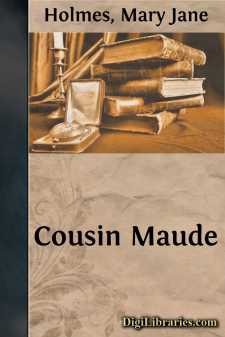Categories
- Antiques & Collectibles 13
- Architecture 36
- Art 48
- Bibles 22
- Biography & Autobiography 813
- Body, Mind & Spirit 142
- Business & Economics 28
- Children's Books 17
- Children's Fiction 14
- Computers 4
- Cooking 94
- Crafts & Hobbies 4
- Drama 346
- Education 46
- Family & Relationships 57
- Fiction 11829
- Games 19
- Gardening 17
- Health & Fitness 34
- History 1377
- House & Home 1
- Humor 147
- Juvenile Fiction 1873
- Juvenile Nonfiction 202
- Language Arts & Disciplines 88
- Law 16
- Literary Collections 686
- Literary Criticism 179
- Mathematics 13
- Medical 41
- Music 40
- Nature 179
- Non-Classifiable 1768
- Performing Arts 7
- Periodicals 1453
- Philosophy 64
- Photography 2
- Poetry 896
- Political Science 203
- Psychology 42
- Reference 154
- Religion 513
- Science 126
- Self-Help 84
- Social Science 81
- Sports & Recreation 34
- Study Aids 3
- Technology & Engineering 59
- Transportation 23
- Travel 463
- True Crime 29
Bessie's Fortune A Novel
by: Mary Jane Holmes
Description:
Excerpt
CHAPTER I.
Mrs. Geraldine Jerrold, of Boston, had in her girlhood been Miss Geraldine Grey, of Allington, one of those quiet, pretty little towns which so thickly dot the hills and valleys Of New England. Her father, who died before her marriage, had been a sea-captain, and a man of great wealth, and was looked upon as a kind of autocrat, whose opinion was a law and whose friendship was an honor. When a young lady, Miss Geraldine had chafed at the stupid town and the stupider people, as she designated the citizens of Allington, and had only been happy when the house at Grey's Park was full of guests after the manner of English houses, where hospitality is dispensed on a larger scale than is common in America. She had been abroad, and had spent some weeks in Derbyshire at the Peacock Inn, close to the park of Chatsworth, which she admired so much that on her return to Allington she never rested until the five acres of land, in the midst of which her father's house stood, were improved and fitted up as nearly as possible like the beautiful grounds across the sea. With good taste and plenty of money, she succeeded beyond her most sanguine hopes, and Grey's Park was the pride of the town, and the wonder of the entire county. A kind of show place it became, and Miss Geraldine was never happier or prouder than when strangers were going over the grounds or through the house, which was filled with rare pictures and choice statuary gathered from all parts of the world, for Captain Grey had brought something curious and costly from every port at which his vessel touched, so that the house was like a museum, or, as Miss Geraldine fancied, like the palaces and castles in Europe, which are shown to strangers in the absence of the family.
At the age of twenty-two, Miss Geraldine had married Burton Jerrold, a young man from one of the leading banks in Boston, and whose father, Peter Jerrold, had, for years, lived on a small farm a mile or more from the town of Allington. So far as Geraldine knew, the Jerrold blood was as good as the Grey's, even if old Peter did live a hermit life and wear a drab overcoat which must have dated back more years than she could remember. No one had ever breathed a word of censure against the peculiar man, who was never known to smile, and who seldom spoke except he was spoken to, and who, with his long white hair falling around his thin face, looked like some old picture of a saint, when on Sunday he sat in his accustomed pew by the door, and like the publican, seemed almost to smite upon his breast as he confessed himself to be a miserable sinner.
Had Burton Jerrold remained at home and been content to till the barren soil of his father's rocky farm, not his handsome face, or polished manners, or adoration of herself as the queen of queens, could have won a second thought from Geraldine, for she hated farmers, who smelled of the barn and wore cowhide boots, and would sooner have died than been a farmer's wife. But Burton had never tilled the soil, nor worn cowhide boots nor smelled of the barn, for when he was a mere boy, his mother died, and an old aunt, who lived in Boston, took him for her own, and gave him all the advantages of a city education until he was old enough to enter one of the principal banks as a clerk; then she died and left him all her fortune, except a thousand dollars which she gave to his sister Hannah, who still lived at home upon the farm, and was almost as silent and peculiar as the father himself....












